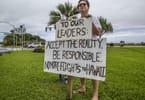How much evidence do we need that business travel is going to diminish? GBTA says that spending losses will be 10 times larger than during the 9/11 and GFC crises. Importantly, even before COVID, business travel was already declining as a proportion of the total. In the UK, international leisure travel increased three and a half percent annually in the 20 years to 2019. International business travel just grew 0.2% annually during that period. McKinsey says international business travel from the US took five years to rebound fully after the GFC. Whereas leisure travel recovered within two years. That’ll be different this time, potentially.
Deloitte says 90% of finance directors in the UK say that 44% of them, so of the 90 finance directors of the UK’s largest companies, 44% of them will reduce discretionary spending like travel even further, even further over the next 12 months. They’re anticipating a fivefold increase in homeworking relative to pre-pandemic levels. Again, a proven factor or connection with not traveling internationally for business. And Bill Gates, that font of all wisdom, says business travel will be 50% of previous levels. I don’t think he just made that up. He’s got a lot of very, very skillful people working on these things, but it’s a large number. It may be smaller. It may be bigger.
Meanwhile, though, I think what’s important is that hotel groups are recognizing this. Accor CEO says, “We’ve decided to go very, very deep on buffering what could be a major loss in business travel.” They’re in the early stages of making unused floors of the hotels available for companies to set up remote working hubs. These adjustment processes, Hilton and Marriott, similarly doing creative, innovative things. Meanwhile, what’s happening in the airline industry? They’re talking tough. It’s not going to go away or, “We can get through it. We can work around it.” But do they really have the ability or the good sense to adapt their models to meet the new reality? Soon going to find out.
Next one, where are the governments when you need them? Restoring international travel is going to be a long and very difficult process. The whole of the past year has been characterized by nationalism in the approach to fighting out the pandemic. It’s become a global war against each other as well as against the pandemic. But it needs multilateral action, and even the multilateral organizations, who are in some cases doing some very good things, seem to be acting almost unilaterally themselves in terms of connecting with the other multilateral bodies. This lack of international coordination and cross-border movement of people is going to continue throughout this year because new outbreaks are going to continue around the world and it’s going to make regrowth incredibly difficult. The only real way of getting around that it’s getting some standardization and coordination between governments.
Davos, last month, which is admittedly not in governments, but a lot of governments attend, and these are the world’s thought leaders, “Millions of jobs are at risk,” says Luis Felipe de Oliveira, who’s the ACI world director general. “The industry lost $112 billion last year, and we lost 65% of expected global passenger traffic. It’s not expected to recover before 2024 and ’25, and in some markets, even later. There are some good developments in domestic markets with some recovery, but international traffic’s still at a standstill.”
So, what did they talk about at Davos? They talked about reducing aviation emissions, which, in fact, have reduced anywhere between 20 to 50% in the past year and they won’t increase to 2019 levels for at least another five years. Now, there can be no doubt we’re on the brink of an environmental catastrophe. I think that’s recognized and it’s vital to talk about it, but we have an existential issue as well. We’re already in the middle of a humanitarian and economic catastrophe. It’s a critical time for intergovernmental leadership on COVID and air travel coordination, and it’s not happening.
Let’s talk about the jab wars, the process of getting vaccinations rolled out. The WHO director general talked about the world facing a vaccine and moral crisis. It’s already become a political battle front in Europe. The EU versus AstraZeneca dispute caused distribution issues, practical issues, as well as a lot of angst between the various governments and threats of border closure. Pfizer risk also being dragged into that process. Many developed governments have ordered vaccines in numbers well above their requirements.
The thing is with jab wars, everybody needs everyone else to be vaccinated. So how can access to vaccines be evenly distributed between the haves and the have nots? It’s an issue of moral importance. It’s also critical to the restoration of international air services. So, things like how quickly can a digital passport proving vaccinations be introduced globally? What’s the legal mechanism to do it? What happens in the case of countries that refuse to accept it? What happens to those who aren’t digital? Would there be a paper version of the certificate? Would they be accepted? All these sorts of issues which really aren’t being dealt with at the moment.
There’s a lot of logic, also, in a humanitarian approach. An ICC commissioned study said that unequal vaccination across among countries will lead to a total cost for the world of between two and $4 trillion, and up to half of those costs paid for by the wealthy nations. In contrast, the cost of vaccinating a fifth of the world’s vulnerable population, as the WHO’s COVAX initiative aims to do, would cost less than $40 billion. Again, global vaccination would also restore international aviation much faster.
Finally, to talk about what I see as some of the future industry directions. There are many changes because, as I said, there won’t be an industry that’s the same as it was before, but these are some of the key ones, I think, which will really influence developments and growth in the next few years. First of all, airline revenue streams have to change greatly. They’re already evolving, had been before COVID, but because passenger and yield profiles will be very different in the short-term, that means a new trajectory for the medium and longer term. It’ll be driven by soft consumer demand, both economically driven and concerns about flying, by diminished business travel, and by lower average ticket deals, particularly in short haul markets.
The inverse is necessarily that ancillaries in one form or another are going to have to play a much greater role if airlines are going to be successful in, for example, using their brand to generate revenues. The airlines that have done best in the last year are the ones who’ve been generating a lot of income from non-ticket sources. Several airlines have achieved 50% or more of much lower ticket prices, certainly, of their total revenue from ancillaries. For example, VietJet low-cost carrier in Vietnam, which was one of the few, if not the only, passenger airline in the world to be profitable through the whole of 2020, generated over 50% of its revenues from non-ticket revenue.
Cargo too has of course helped, which is sort of for these purposes, to some extent, an ancillary. But other revenue streams which have been evolving in which will have to accelerate are things like loyalty programs. Qantas, for example, have talked about having half of its EBIT from its loyalty program by now, by about 2023. Then the sort of brand leverage and diversification that AirAsia is talking about as it becomes a digital airline with airasia.com, which again, aims to generate 50% of its revenue from nonairline non-ticket revenues by the mid-2020s.
O QUE RETIRAR DESTE ARTIGO:
- Deloitte says 90% of finance directors in the UK say that 44% of them, so of the 90 finance directors of the UK’s largest companies, 44% of them will reduce discretionary spending like travel even further, even further over the next 12 months.
- But it needs multilateral action, and even the multilateral organizations, who are in some cases doing some very good things, seem to be acting almost unilaterally themselves in terms of connecting with the other multilateral bodies.
- In the UK, international leisure travel increased three and a half percent annually in the 20 years to 2019.






















